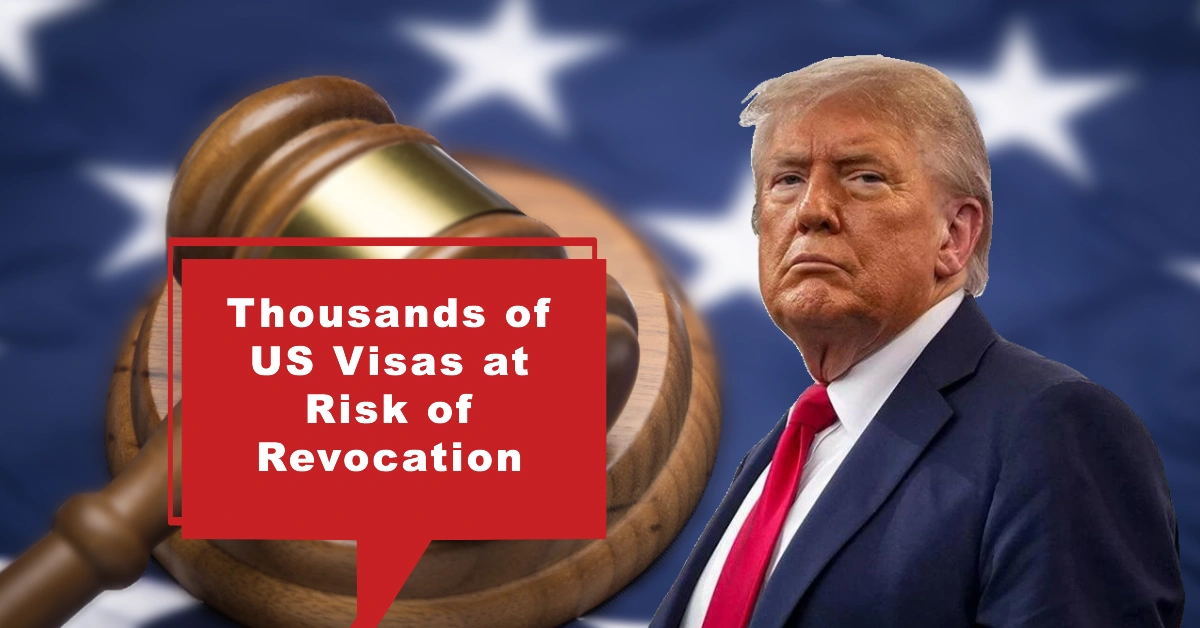Your U.S. Visa Could Be Cancelled in 2025 for This Common Mistake, Warns CBP
U.S. Customs and Border Protection (CBP) has issued a serious reminder to foreign travelers entering the United States: a physically damaged visa could lead to immediate revocation and denied entry—even if it’s still within its valid period.
As travel increases heading into the summer holiday season, CBP officials are doubling down on inspections and applying strict standards on the physical condition of visas. This move has already impacted thousands of travellers and could affect many more unless swift action is taken.
Table of Contents
Why CBP Is Cancelling Visas for Physical Damage
Every visa presented at a U.S. port of entry undergoes biometric and visual inspection. According to CBP officers, any signs of wear—such as cracks, lifted laminate, scratches, stains, or chip damage—can interfere with contactless scanning. In many cases, the biometric system will flag a malfunction or fail to read the embedded chip entirely.
CBP data reveals that 80 percent of recent visa cancellations were caused by physical damage, with the most common issue being cards stored without protective cases in wallets or purses.
The Real Cost of a Damaged Visa
If your visa cannot be read or is deemed unfit for processing, CBP is authorized to immediately revoke it on the spot. This means you may be required to:
- File a new DS-160 application
- Pay the full visa fee again
- Undergo a new visa interview
- Provide documentation proving ties to your home country
More importantly, you may be denied entry and forced to return home, even if your intentions are legitimate and your visa hasn’t expired.
How CBP Detects Irregularities Instantly
CBP agents use contactless scanners that can detect even minor flaws. If a scan fails, it triggers an alert for manual inspection. Common issues that raise red flags include:
- Lifted or peeling plastic laminate
- Faded or scratched chips
- Water damage or heat warping
- Foreign substances or tampering
These issues can lead to immediate questioning and potential visa revocation if the damage is determined to affect authenticity or function.
Tips to Keep Your U.S. Visa Valid in 2025
With increased enforcement, travelers are urged to inspect their visas before their next trip. Here are CBP-recommended tips to preserve your visa:
1. Store Your Visa Safely
Use a rigid document holder to protect your visa inside your passport. Avoid storing it loosely in your wallet.
2. Avoid Exposure to Elements
Keep your visa away from heat, water, and direct sunlight. Damage from environmental exposure is a common cause of deterioration.
3. Don’t Fold or Bend Your Passport
Repeated bending of your passport can cause laminate lifting or chip failure, especially in biometric visa pages.
4. Inspect Under Bright Light
If you notice discoloration, cracks, or separation in the laminate, it may be time to apply for a replacement.
5. Carry a Digital Backup
While digital visas are not yet available, it’s wise to take a clear photo of your visa and store it securely in case you need to provide information in an emergency.
Can a Visa Still Be Cancelled if It Looks Fine?
Yes. While 2025 enforcement is focused on visible damage, CBP officers can still revoke a visa if they suspect inconsistencies, fraudulent use, or visa category misuse. For instance, entering the U.S. on a tourist visa and then working can result in immediate cancellation and a future ban.
CBP maintains full discretion over entry decisions, regardless of visa condition or validity.
Will Digital Visas Replace Physical Ones?
While U.S. digital IDs, such as passports, are now being supported on Apple devices, foreign visa digitization is still years away. Until then, travelers must maintain and protect their physical visas if they want to enter the United States without issues.
TSA Issues Urgent Warning: Airport Security Puts Your Cell Phone and Personal Data at Risk
Final Reminder Before You Travel
As air travel surges and enforcement tightens, CBP is urging all foreign travelers to double-check the condition of their visas now. A damaged card could mean the difference between a smooth entry and a return flight home—plus the cost and stress of reapplying.
Your trip to Times Square or Disneyland could be derailed by something as small as a scratch. Handle your visa with care, protect it like your passport, and stay informed of U.S. entry regulations as policies evolve.
